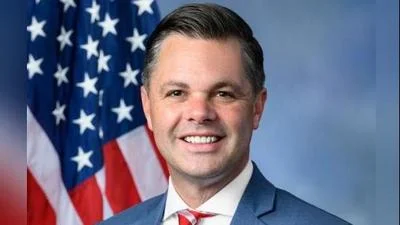U.S. Rep. Zach Nunn Representative for Iowa's 3rd District | Official U.S. House headshot
U.S. Rep. Zach Nunn Representative for Iowa's 3rd District | Official U.S. House headshot
Congressman Zach Nunn, a member of the U.S. House of Representatives, recently used his social media platform to highlight legislative developments concerning cryptocurrency and national security. On July 21, 2025, Nunn referenced Congress’s recent actions and President Trump’s signing of the GENIUS Act.
In a post on July 21, 2025 at 18:00 UTC, Nunn stated, "Last week, Congress delivered clarity on crypto and President Trump signed GENIUS into law. This week, the first cryptocurrency-based market announced its move back to the U.S. American innovation is coming home, and we're just getting started."
One hour later, at 19:00 UTC on July 21, Nunn addressed efforts to impose stricter sanctions on Iran through new legislation. He wrote, "My bill—the Maximum Pressure Act—locks in a tough sanctions regime targeting Iran’s ability to finance and support the IRGC and terror proxies. This is about strong U.S. leadership and equipping President Trump with the tools he needs to ensure the Iranians never develop a".
Later that evening at 22:01 UTC, Nunn discussed bipartisan efforts to safeguard digital innovation from misuse by foreign actors or terrorist groups. He posted, "We laid the groundwork for U.S. crypto leadership last week. Today, we're making sure that innovation can't be weaponized by terrorists or foreign adversaries. My bipartisan bill secures our digital future and protects American lives."
The GENIUS Act referenced by Congressman Nunn is part of recent federal initiatives aimed at providing regulatory clarity for cryptocurrencies in the United States. The move of a cryptocurrency-based market back to the U.S., as mentioned in his posts, follows ongoing debates about domestic regulation versus overseas operations for digital asset companies.
The Maximum Pressure Act is designed to reinforce economic sanctions against Iran with particular focus on restricting financial flows to entities such as the Islamic Revolutionary Guard Corps (IRGC) and associated proxy groups.
These legislative activities reflect broader efforts by Congress to position the United States as a leader in both technological innovation within digital finance and counterterrorism measures related to financial networks.






 Alerts Sign-up
Alerts Sign-up